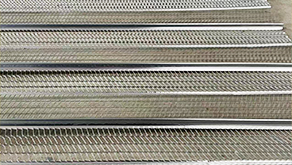10 月 . 13, 2024 01:10 Back to list
ball valve
Understanding Ball Valves A Key Component in Fluid Control
Ball valves are widely recognized as one of the most efficient and reliable devices used for regulating fluid flow in various applications. These valves employ a spherical disc, known as a ball, which acts as the closing mechanism. The ball has a hole or port in the center, allowing fluid to flow through when aligned with the pipe line. When rotated 90 degrees, the ball seals against the valve seat, effectively stopping the flow.
One of the primary advantages of ball valves is their ability to provide a tight seal. This feature makes them ideal for applications requiring minimal leakage and high reliability. Commonly used in industries such as oil and gas, water treatment, and chemical processing, ball valves can handle a wide range of pressures and temperatures, making them a versatile choice.
Installation and operation of ball valves are relatively straightforward. The quarter-turn action allows for quick and easy opening and closing, reducing the risk of wear and tear over time. This simplicity also contributes to their popularity in both commercial and residential plumbing systems.
ball valve

In terms of design, ball valves come in various configurations, including two-way, three-way, and four-way options
. The two-way valve is the most common, controlling flow in a single direction. Three-way and four-way valves, on the other hand, offer more complex control over fluid paths and can be used for mixing, diverting, or regulating flow in multiple directions.Moreover, ball valves are available in different materials such as stainless steel, brass, and plastic, which allows them to be tailored for specific applications. For example, stainless steel ball valves are preferred in corrosive environments, whereas plastic valves are favored for acidic or chemical fluids.
Regular maintenance is crucial for ensuring the longevity and performance of ball valves. Although they are generally low-maintenance, periodic inspections can help prevent unexpected failures and enhance operational efficiency.
In conclusion, ball valves are essential components in fluid control systems due to their reliability, ease of use, and versatility. Whether in industrial or residential settings, their ability to provide secure and efficient flow management makes them indispensable in modern engineering and plumbing. As industries continue to evolve, the role of ball valves will undoubtedly remain significant in ensuring optimal fluid control solutions.
Share
-
Understanding the Differences Between Wafer Type Butterfly Valve and Lugged Butterfly ValveNewsOct.25,2024
-
The Efficiency of Wafer Type Butterfly Valve and Lugged Butterfly ValveNewsOct.25,2024
-
The Ultimate Guide to Industrial Swing Check Valve: Performance, Installation, and MaintenanceNewsOct.25,2024
-
Superior Performance with Industrial Swing Check Valve: The Essential Valve for Any SystemNewsOct.25,2024
-
Industrial Swing Check Valve: The Ideal Solution for Flow ControlNewsOct.25,2024
-
You Need to Know About Industrial Swing Check Valve: Functionality, Scope, and PerformanceNewsOct.25,2024